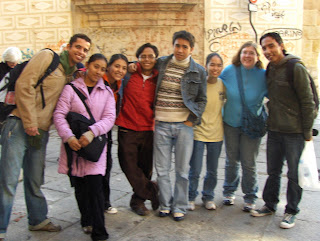At the beginning of every year, I make goals for myself, and
I try and share them here so that someone keeps me honest. This year, however,
I found a writing partner, and I shared my goals with her. She was the one who
kept me going, and I found that I was very successful… mostly.
This year, instead of general goals, I planned out each
month. I had long-term goals, and I had monthly short-term goals to keep me on
track.
Long term goals: Write more, focus on publishing.
I feel like I’ve hit each one of those. It’s hard to really
quantify, but at the beginning of the year, I had a first draft of
Commissioned, and a first draft of Hooked. Commissioned went through three very
vigorous revisions, went through multiple beta readers, and is now being
queried. Hooked has more of a direction, though now that I’ve written book 3 and 4,
there will be some obvious changes that I’ll need to address, but that should
be easy enough.
Write more. I had the idea of getting Commissioned ready for
querying, and hopefully finishing the trilogy. As I expanded, the series turned
into four books, and I had an idea for another book as well, a light,
science-fiction version of Jack and the Beanstalk. So instead of writing one
brand new book in 2016, I ended up writing three.
My other goal was to read 45 books this year. Unfortunately,
I did not reach that goal, but if I could count the different novels that I beta
read for, I would be pretty darn close. About four books off, and the month isn’t
quite over.
How about the rest of you? Did you reach your goals?





